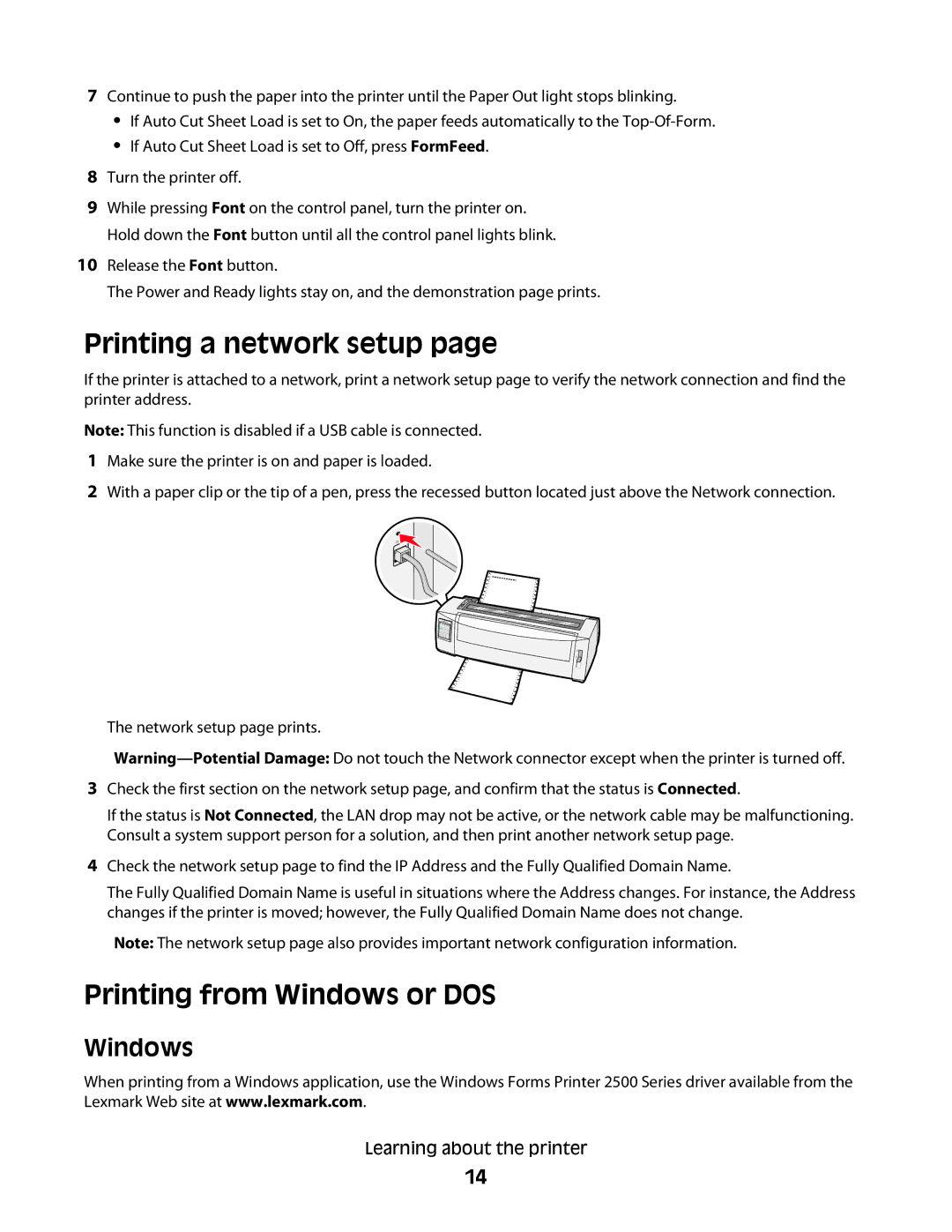
7Continue to push the paper into the printer until the Paper Out light stops blinking.
•If Auto Cut Sheet Load is set to On, the paper feeds automatically to the
•If Auto Cut Sheet Load is set to Off, press FormFeed.
8Turn the printer off.
9While pressing Font on the control panel, turn the printer on. Hold down the Font button until all the control panel lights blink.
10Release the Font button.
The Power and Ready lights stay on, and the demonstration page prints.
Printing a network setup page
If the printer is attached to a network, print a network setup page to verify the network connection and find the printer address.
Note: This function is disabled if a USB cable is connected.
1Make sure the printer is on and paper is loaded.
2With a paper clip or the tip of a pen, press the recessed button located just above the Network connection.
The network setup page prints.
3Check the first section on the network setup page, and confirm that the status is Connected.
If the status is Not Connected, the LAN drop may not be active, or the network cable may be malfunctioning. Consult a system support person for a solution, and then print another network setup page.
4Check the network setup page to find the IP Address and the Fully Qualified Domain Name.
The Fully Qualified Domain Name is useful in situations where the Address changes. For instance, the Address changes if the printer is moved; however, the Fully Qualified Domain Name does not change.
Note: The network setup page also provides important network configuration information.
Printing from Windows or DOS
Windows
When printing from a Windows application, use the Windows Forms Printer 2500 Series driver available from the Lexmark Web site at www.lexmark.com.
Learning about the printer
14
